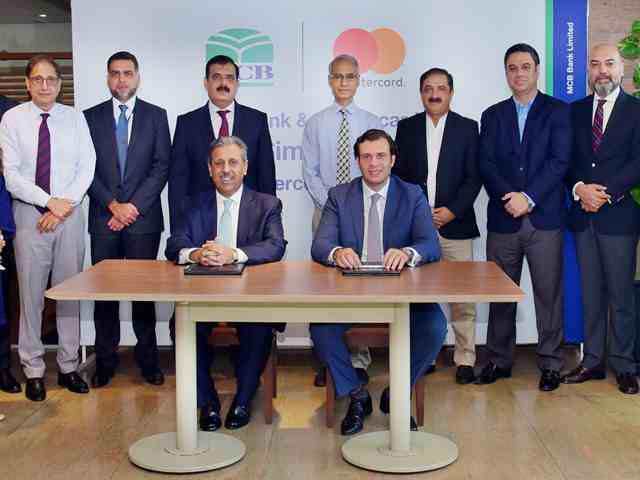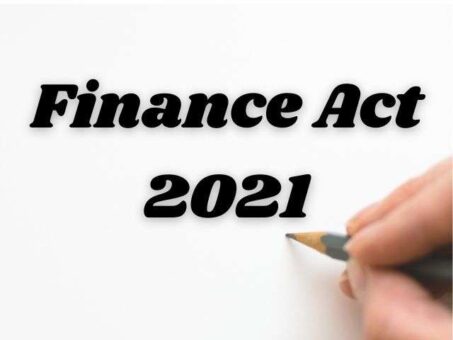LAHORE: Mastercard and MCB Bank have signed an agreement to boost financial inclusion and empower Small and Medium Enterprises (SMEs) in Pakistan.
The agreement was signed between J.K. Khalil, Cluster General Manager, MENA East, Mastercard and Shoaib Mumtaz, President & CEO, MCB Bank at MCB House, Lahore. Senior members from both organizations were also present at the ceremony.
READ MORE: Mastercard, Bank Alfalah enter strategic partnership
Simplify Commerce, powered by Mastercard Payment Gateway Services, is specifically designed to be easy to use, making it possible for merchants with only a minimal amount of digital experience to access a convenient and secure acceptance solution and receive payments within a matter of minutes.
The partnership allows businesses to sign up for an innovative and cost-effective application that allows them to quickly embrace electronic acceptance. Extremely easy to set up, the technology enables SMEs with a suite of powerful payments and business management features that help simplify backend processes, helping MCB partner merchants to focus on core business functions as they enter and thrive in the digital marketplace.
The solution benefits small businesses who want to build their own webstores without coding knowledge, use advance payment options such as e-invoicing, integrate with social media, take informed business decision using the powerful reporting module or build payments into existing websites with hosted payment or shopping cart payment plug-ins.
READ MORE: Bank Alfalah posts 45% growth in profit after tax
J. K. Khalil, Cluster General Manager, MENA East, Mastercard, said: “Small businesses play a vital role in uplifting communities and building inclusive economies. As SMEs navigate a changing digital world, it is crucial to have access to the right insights, technologies, and solutions to grow and scale. Together with MCB Bank, we are supporting Pakistan’s SME community and providing these businesses with the digital tools and resources to help them thrive.”
Shoaib Mumtaz, President & CEO at MCB Bank, said: “Our alliance with Mastercard will provide small and medium enterprises a powerful suite of business management tools to better manage the financial and administrative aspects of their enterprises. We are confident that Simplify Commerce will greatly streamline backend processes, providing MCB partner merchants the freedom to focus on what’s important, growing their businesses in the ecommerce arena. This partnership will go a long way towards empowering entrepreneurs and fostering financial inclusion, both critical drivers of sustainable economic growth.”
READ MORE: Meezan Bank announces direct payment integration with VISA Card
According to the Pakistan Bureau of Statistics, in 2019, SMEs constitute nearly 90% of entirely private businesses and employ almost 78% of the non-agricultural labor force in Pakistan reflecting the huge potential for digitalization of these businesses to boost the nation’s economy.
The announcement builds on Mastercard’s longstanding relationship with MCB Bank and its ongoing support to SMEs in Pakistan and across the MENA region. Globally, Mastercard has pledged to connect one billion people and 50 million micro, medium and small businesses to the digital economy by 2025 – with a direct focus on 25 million women entrepreneurs.






